Sambor style
I have talked before about the typical style of lintel that showcases the pre-Angkorean, Sambor Prei Kuk era from the 7th century (around 610-650 under Kings Isanavarman I and Bhavavarman II) with its makara monsters, four arches and three medallions. A quick look in the storage area near the northern group of monuments at Sambor Prei Kuk reveals a couple of perfect examples. In the lintel above, Indra on his mount airavata sits in the central medallion though the figures above the makaras are a bit worn. The two prominent architectural styles following the Sambor Prei Kuk era were the Prei Kmeng and Kompong Preah styles that are notable for their absence of inward-facing makaras and medallions and the appearance of distinct garlands of vegetation and leafy pendants. And that's exactly what you can see on the central tower of the Prasat Tao group at Sambor. The four lintels still in situ, which is rare at Sambor, show a style more in line with the Kompong Preah characteristics, though its widely known that Sambor Prei Kuk was a complex that was added to and altered over a number of centuries, so a mixture of styles isn't unusual. Three of the lintels show a distinctive set of jeweled garlands with pendants, almost like a coat of arms, of vegetal motifs. There are no mythical figures, monsters or gods to be found on these lintels. The final examples I photographed on last week's trip to the temple complex were three lintels from Prasat Yeay Poeun, believed to be constructed at the beginning of the 7th century and though badly worn, two of them are definitely Sambor Prei Kuk style though the third looks more atuned to the Prei Kmeng style with large figures at each end and a narrative scene below the arch. My visit to Sambor was a short one, I wasn't able to visit many of the individual temples as there are hundreds so I'm sure there's more lintels to be spotted in situ, but at least the examples shown here give you a window into the Sambor style.
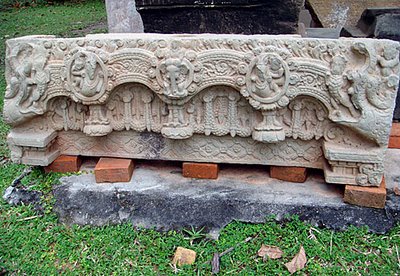
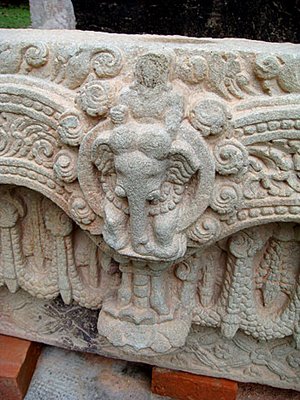
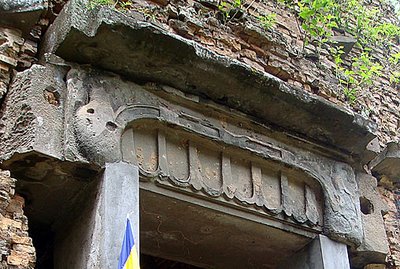
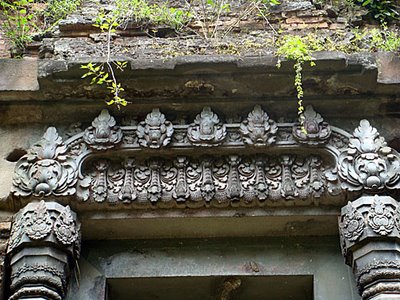
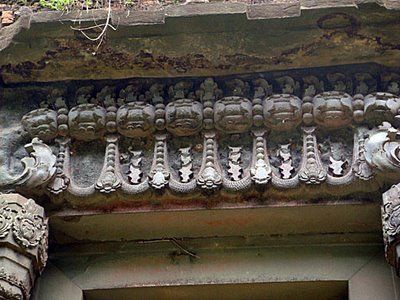
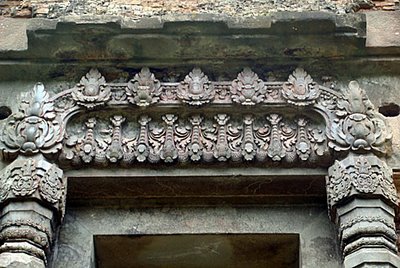
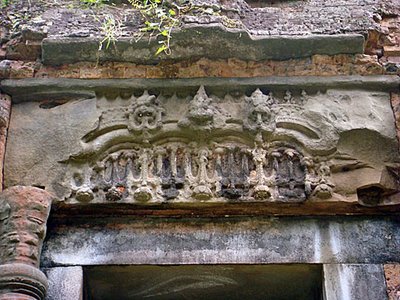
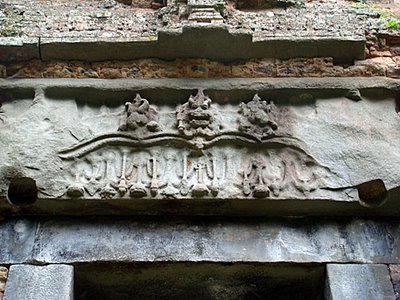
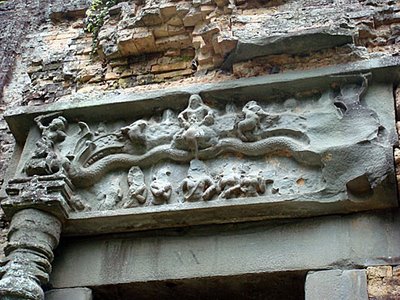


0 Comments:
Post a Comment
<< Home